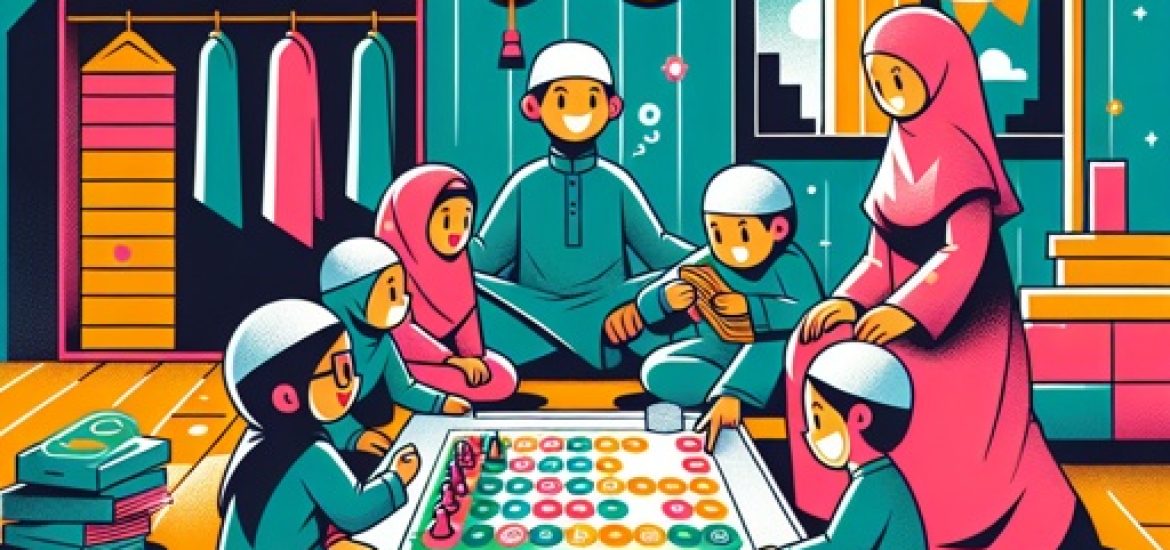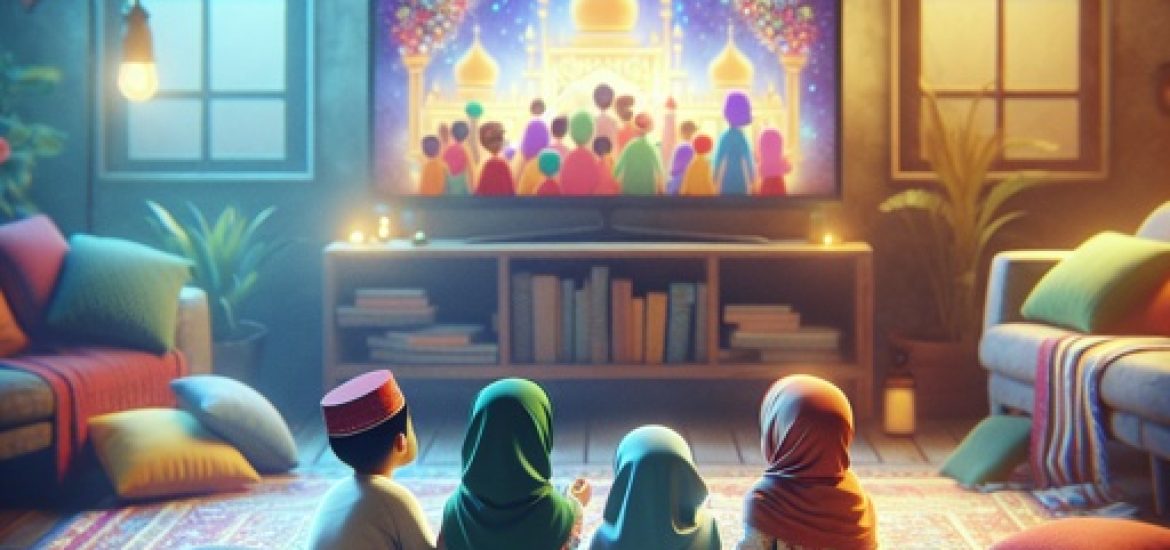Have you ever needed help with something important, like passing a test, feeling better when you’re sick, or making a wish come true? When we need help, we can ask Allah through a special prayer called Dua e Hajat, the Prayer of Need.
Ramadan is the perfect time to perform Dua e Hajat because Allah loves to hear from us, especially during this blessed month.
Let’s explore what Dua e Hajat is, how to recite it, and how it can bring you closer to Allah during this special time. To understand more about essential Islamic principles, visit this guide on the 10 rules of Islam.
What Is a Dua? (Asking Allah for Anything Good)
Dua means talking to Allah and asking for help, forgiveness, or anything good. It is a way for Muslims to connect with their Creator. Allah loves when we talk to Him, and He is always listening.
Some examples include:
- “O Allah, help me do well on my test.”
- “O Allah, keep my family healthy.”
- “O Allah, make me kind and happy.”
No prayer of need is too big or too small for Allah. He loves it when we ask Him, even for simple things like finding a lost toy.
What Is Dua e Hajat? (The Special Prayer of Need)
Dua e Hajat is a special dua Muslims say when they need something important from Allah. It’s called the Prayer of Need because it helps us ask Allah when we truly need Him.
The word Hajat means “need.” If you ever need help, guidance, or support to fulfill something in your heart, Dua e Hajat is the perfect prayer for you.
Ramadan is an ideal time to perform Dua e Hajat, especially during the middle and last ten nights. This is the perfect opportunity to seek Allah’s blessings and mercy. Learn more about what awaits the believers in Jannah and how Allah rewards good deeds.
When Can You Say Dua e Hajat?
Dua e Hajat can be made anytime, but some of the best times to say it include:
- When you need help with something important.
- When you feel worried or scared.
- When you have a wish or dream you hope to come true.
- Before Iftar (breaking the fast).
- After Salah (prayer).
- During the last ten nights of Ramadan, especially Laylatul Qadr.
Allah listens to you whether it is day or night, and He loves hearing your voice, especially in Ramadan, as you make your Dua e Hajat.
How to Perform Salat al-Hajat (The Prayer of Need)
Performing Salat al-Hajat is simple and meaningful. Here are the steps:
- Perform Wudu (Ablution) – Ensure you are in a state of cleanliness and purity, which is essential before standing in prayer.
- Pray Two Rak’ahs of Salah – Perform two rak’ahs of voluntary prayer, maintaining sincerity and devotion.
- Raise Your Hands in Humility – After the prayer, raise your hands and make dua, seeking Allah’s guidance and help.
- Recite the Special Dua e Hajat – You can recite the dua taught by the Prophet Muhammad ﷺ, or you can express your needs to Allah in your own words. Ask for anything, big or small, as Allah is always listening.
Short Version of Dua e Hajat for Kids:
“O Allah, You are the Most Kind and Most Generous. I need Your help. Please make my wish come true and make everything easy for me. Ameen.”
You can talk to Allah in your own way too. Allah understands every language, even the whispers of your heart. This prayer is not just about requesting something, but also about deepening your connection with Allah, recognizing His mercy, and feeling reassured that He listens to every call.
Why Is Dua Extra Special in Ramadan?
The Power of Dua in Ramadan
Dua holds a special place in a Muslim’s heart throughout the year, but in Ramadan, it becomes even more powerful. The gates of mercy are wide open, and worshipers ask Allah for guidance in all aspects of their lives.
During this blessed month, every dua is heard with greater acceptance. The Prophet Muhammad ﷺ said, “The supplication of a fasting person is not rejected.” (Tirmidhi)
The Best Times to Make Dua in Ramadan
Ramadan provides specific times that are especially beneficial for making dua:
- Before Iftar (breaking the fast) – This is a time when Allah’s mercy is at its peak, and duas are readily accepted.
- After Taraweeh Prayer – A moment of spiritual connection that allows deep reflection and heartfelt supplication, especially during the time for Dua e Hajat.
- During Suhoor (pre-dawn meal) – A quiet and serene time when sincere prayers can be made.
- The Last Ten Nights of Ramadan – These nights include Laylatul Qadr, the Night of Decree, which is better than a thousand months.
Building a Relationship with Allah Through Dua
Every time you talk to Allah, you are strengthening your connection with Him. Making dua consistently in Ramadan is like planting a seed in fertile soil—Allah helps it grow into something beautiful.
When you sincerely ask, you are showing your faith and trust in His wisdom and mercy.
Before Iftar, ask Allah to bless your family. After Taraweeh, recite for your dreams. Every dua made in Ramadan carries the potential for unimaginable blessings.
What Can Kids Ask for in Dua e Hajat?
There is no limit to what kids can ask for in their dua, and it is a way to express their hopes, dreams, and gratitude. Some ideas include:
- Good grades in school, so they can learn and succeed.
- A happy and healthy family, as family is a great blessing from Allah.
- To be kind and patient, so they can have good manners and a loving heart.
- A chance to visit Makkah and Madinah, to see the holy places and strengthen their faith.
- Lots of barakah (blessings) in their life, so everything they do is full of goodness and success.
Additionally, kids can ask for:
- Protection from harm and safety for themselves and their loved ones.
- The ability to help others and be generous.
- Strength to overcome difficulties and challenges.
- A pure heart filled with love for Allah and His teachings.
- The opportunity to do good deeds and make a positive difference.
Asking Allah for guidance or help in all matters is a practice of faith, and making Dua e Hajat is a reminder that Allah is always there to listen.
Teaching Kids Patience: Allah Answers in Different Ways
Allah always answers duas, but sometimes it happens in different ways:
- Yes, right away, when it’s the right time.
- Yes, but later, when the time is right.
- No, but Allah gives something even better.
Think of Allah’s answers like surprise gifts—you may not see them immediately, but they are always filled with His love.
Making Dua a Part of Your Ramadan Routine
Encourage kids to make dua every day:
- Create a “Dua Jar” by writing down duas on small papers and pulling one out every day.
- Make a “Dua List” by writing down wishes and checking them off after Ramadan.
Talking to Allah every day will make your heart feel peaceful and happy.
Might Also Like: The Power of Durud and Muhammad ﷺ
The recitation of Durud holds immense rewards and is a way of showing love and respect for Muhammad ﷺ. Sending blessings upon the Prophet is a means of attaining Allah’s blessings and gaining closeness to Him.
The Prophet Muhammad ﷺ said, “Whoever sends blessings upon me once, Allah will send blessings upon him tenfold.” (Muslim)
This highlights the significance of regularly reciting Durud as a means of seeking peace and mercy from Allah. Making Durud a daily practice invites Allah’s blessings into our lives while strengthening faith and seeking forgiveness.
Conclusion
Dua e Hajat is a special prayer when you need help from Allah. He is always listening! Use this dua during Ramadan and throughout the year to bring you closer to Him.
No dream is too big when you ask Allah with a sincere heart.
For more ways to learn about Ramadan and Islamic teachings, visit Islamic Galaxy. Explore our fun videos, games, and learning programs here.




